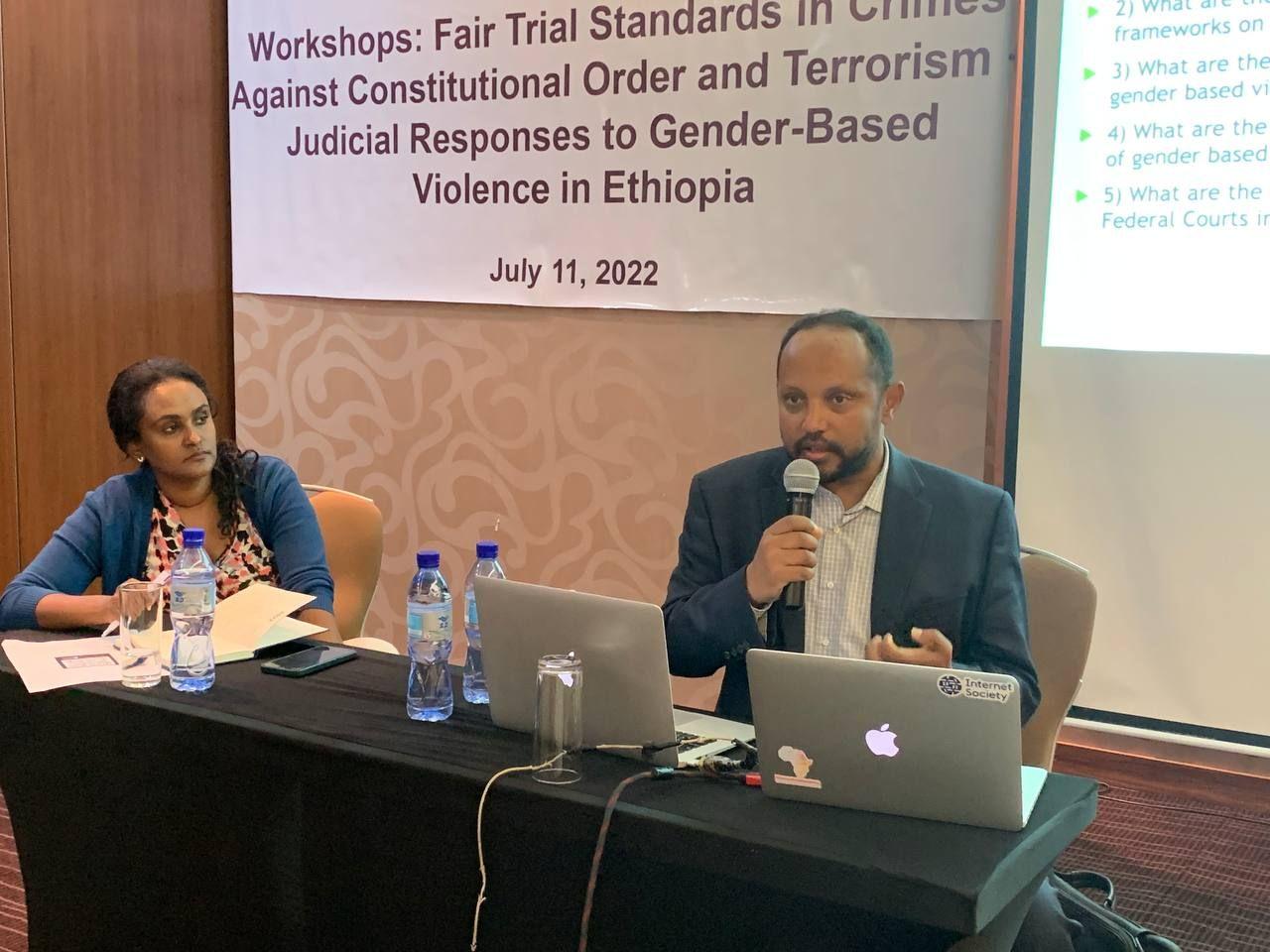To arrest, prosecute and punish an individual is the most coercive use of state authority whereby the power of the state can be exercised. This kind of state power, however, must be exercised with restraint and safeguards must be put in place to protect the rights of the accused person throughout the criminal proceedings. This essential instrument what we nowadays call 'fair trial' rights or standards, is an internationally recognized human right that further helps to safeguard substantive human rights of accused persons and is key to dispensing justice in any given society.
Assessing fair trial standards in Ethiopia was one of the topics of the studies the KAS Office Ethiopia/AU recently conducted with its local partner, Lawyers for Human Rights (LHR). Since the beginning of its work in Ethiopia, Konrad Adenauer Foundation (KAS), which was registered as a CSO in 2019, has been committed to supporting Ethiopia in improving its human rights standards. For this, it collaborates with the important local human rights organization, LHR, led by human rights lawyer Ameha Mekonnen who has a long experience, both as an academic and as a practicing lawyer of many past high-profile human rights cases in Ethiopia. The second study focused on the current state of Gender-Based Violence (GBV) in Ethiopia.
Given the significance of fair trial standards to an accused person, the first study by Prof. Molalign Asmare assessed laws and practices of fair trial standards in cases of terrorism and crimes against the constitutional order at the Federal High Court of Ethiopia. The study, among others, shows that there is a lack of strong and smooth institutional collaboration among the actors of the Ethiopian criminal justice system. The study also showed that some stakeholders blame each other and that there are structural problems with the establishment of the office of defense lawyers.
As solutions, the study recommends capacity-building training and developing strategic institutional collaboration mechanisms for actors of the criminal justice system, introducing timely remedial measures by courts for unlawful acts committed on the accused persons by the police, prosecution office, and defense lawyers, and reorganize the office of defense lawyers for its independent and autonomous function.
Another grave concern today in Ethiopia that does not get enough attention is GBV. It is a multifaceted, culturally rooted, and yet least visible human rights violation in the country. In consideration of the existing GBV as one of the pressing issues in Ethiopia, the study by Prof. Girmachew Alemu of Addis Ababa University showed that there are gaps in national laws and policies regarding defining GBV, a lack of capacity in understanding GBV, insufficient evidence of GBV crimes, inadequate use of forensic technology, and problems related to investigation processes. The situation is worsened by a lack of societal awareness and pressure on the victims. As measures, the study recommends capacity-building training for different actors of the justice system, revision of national laws and policies to better define GBV, increase punishments, and raising awareness in the Ethiopian society to shape the perception and understanding of GBV. As some of the participants put it, guaranteeing basic human rights is a promise that Ethiopia, a country that wants to improve life for all its citizens and be a champion, must uphold.
Both studies, which were financed by KAS, were presented in a workshop on 11 July 2022 in Addis Ababa. The joint event was attended by judges and leading representatives of the federal courts of Ethiopia, the Ministry of Justice, academic researchers from different universities, and representatives of different local and international human rights organizations.



